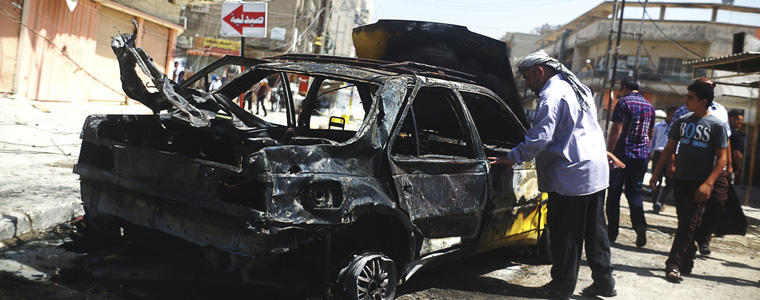
A recent PEW Research Center report examined polls conducted between November 2011 and May 2012. It found that 52 percent of Muslims polled in Iraq, 44 percent in Afghanistan and 67 percent in Lebanon said Sunni-Shia tensions are a “very big or moderately big” problem in their country. The re-escalation of violence in Iraq this year likely would have increased the concern there if the polling were conducted today.
An August 2012 analysis by CQ Global Researcher suggests that sectarianism among Muslims occurs mainly as a result of mistrust. It’s not surprising that, in midst of conflict, revolutions, and fragile and crisis environments, human beings turn inward out of survival, to protect their core identities.
Both reports illustrate a growing concern among Muslims that Sunni-Shia sectarianism and violent extremism is rapidly rising without much attention on how to reverse its course. Recent studies examining violent extremism and violent religious sectarianism explain that such actions tend to be responses to conditions such as authoritarian regimes, the secularization of Muslim societies, weak economies, unstable democratic institutions, and the consequences of globalization. Those factors are connected with the steady increase in Sunni and Shia fundamentalist groups that have produced militias and extremist organizations, crowding out moderate religious or secular voices.
With the multiplicity of problems, however, comes a multiplicity of opportunities: The diversity of traditions, cultures, opinions, and civilizations within Islam greatly enhances and enriches the possibilities for peacebuilding. Such efforts mainly need to be better integrated and coordinated.
For example, in Iraq, Afghanistan, Pakistan, the Philippines, Indonesia, Nigeria, and Sudan, USIP has encouraged strategic dialogues by increasing the conflict-management skills of religious leaders. Once trained in these approaches, senior Sunni and Shia religious leaders, and counterparts in other faith traditions, pass along their knowledge of peacebuilding by training up-and-coming leaders. Trainers across a region document their practices and share lessons learned.
To counteract violent sectarianism, there is a real need to increase peacemaking activities typically undertaken by civil society organizations. USIP’s programs have supported Sunni and Shia organizations in Lebanon, Iraq, Afghanistan, Pakistan, and other countries experiencing sectarian rifts, to intervene and reduce violence, advance mutual understanding, further tolerance within a faith, and implement applied peacebuilding curricula in schools.
Such efforts are particularly effective when they are coordinated with other measures, such as programs that address political stagnation, historical memories of injustice, and economic and political disparities.
In addition, work to mitigate extremism and sectarianism in Muslim communities needs to be integrated with larger enterprises aiming to establish a culture of peacemaking. Many Muslim communities beset by protracted violence such as in Indonesia, Afghanistan, Thailand, and Kenya, have undertaken their own innovative, low-cost, community-based projects. The senior religious leaders who are running these programs are critical peacebuilding agents, but their operations tend to work in isolation, disconnected from similar efforts by international groups often going on at the same time.
Security and stability in any nation also rests heavily on human capital; ignoring the problems associated with low levels of development and security neglects the core drivers of instability. So developing and improving water, sanitation networks, and agricultural irrigation systems, for example, can alleviate shortages that aggravate tensions. That means peacebuilding efforts must be bolstered by serious international development in areas such as public works, electrical and alternative-energy, roads, bridges, commercial centers, transportation systems, and existing educational institutions.
There are real practical solutions to violent sectarianism. Strategic peacebuilding activities reduce violent sectarianism when they instill preventative skills and the knowledge required to secure communities. This is a multidimensional, highly complex process that requires numerous players, not only religious leaders, simultaneously working at different levels and in disparate parts of society.
Peacebuilding efforts promote human security and strengthen the capacity of societies generally to manage conflict without violence, while diminishing the influence of extremist ideologies.
Qamar-ul Huda works in USIP’s Religion and Peacemaking Center, is the editor of Crescent and Dove: Peace and Conflict Resolution in Islam and leading the USIP’s Academy for International Conflict Management and Peacebuilding efforts on Countering Violent Extremism (CVE).



